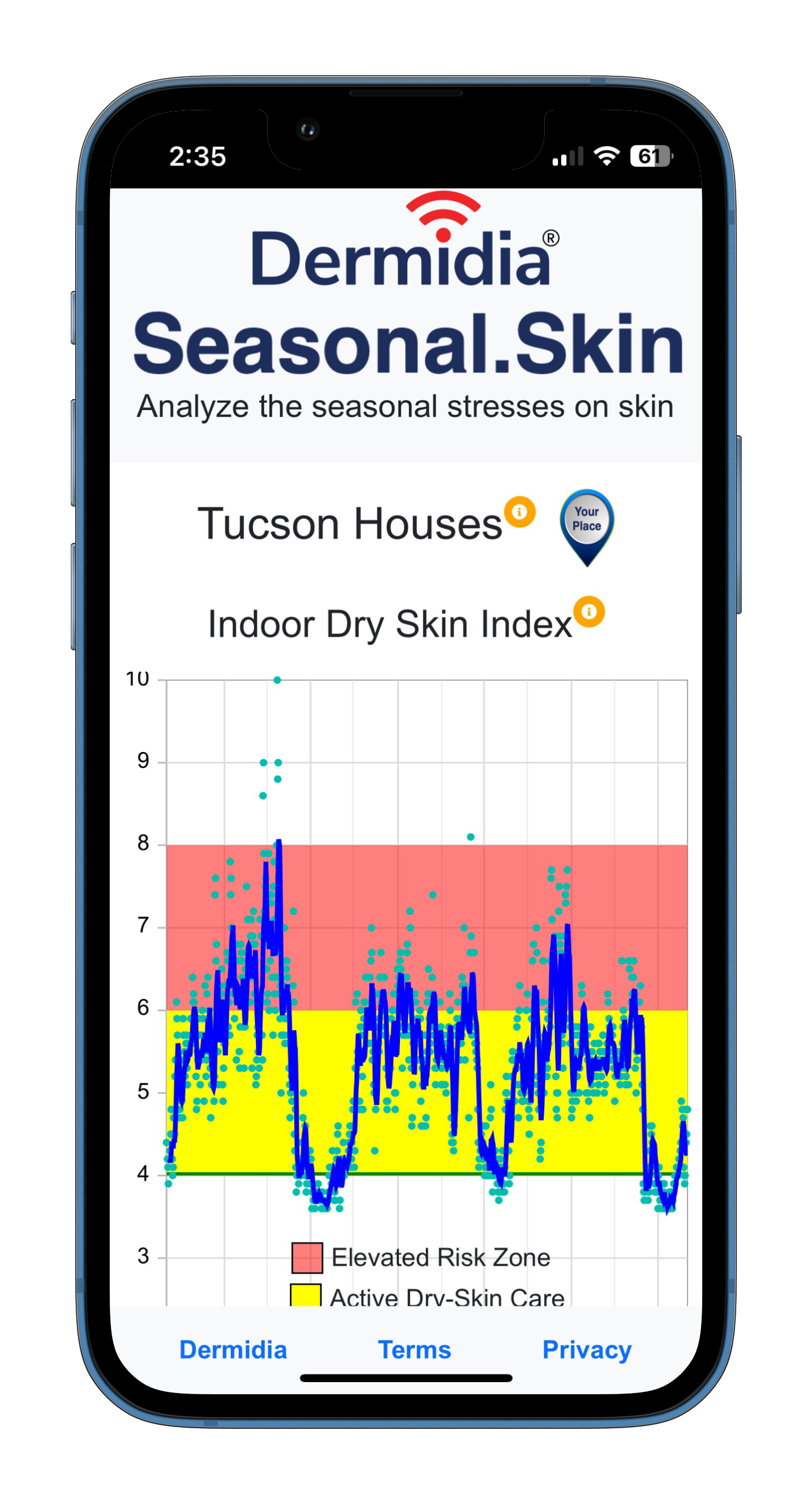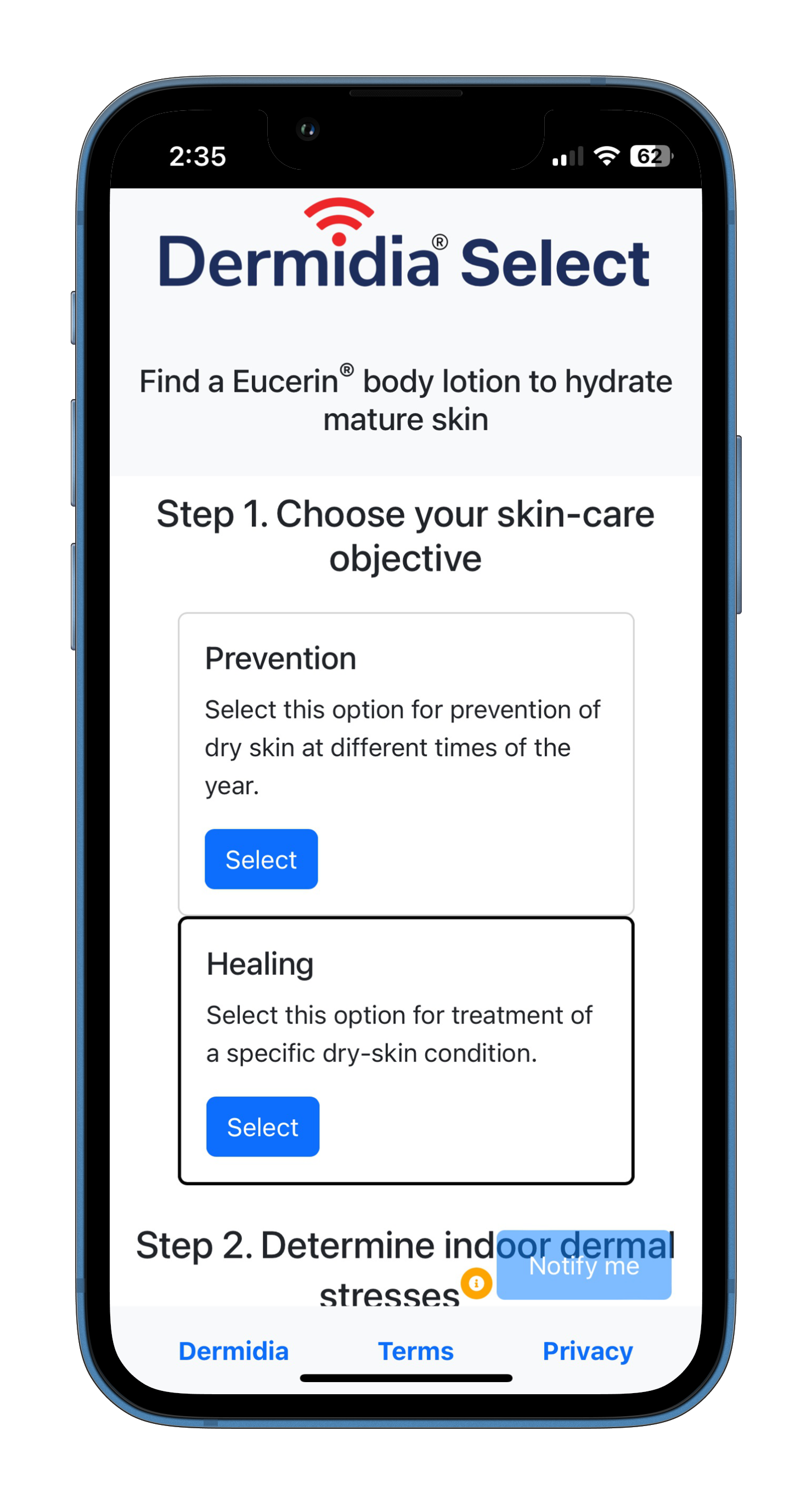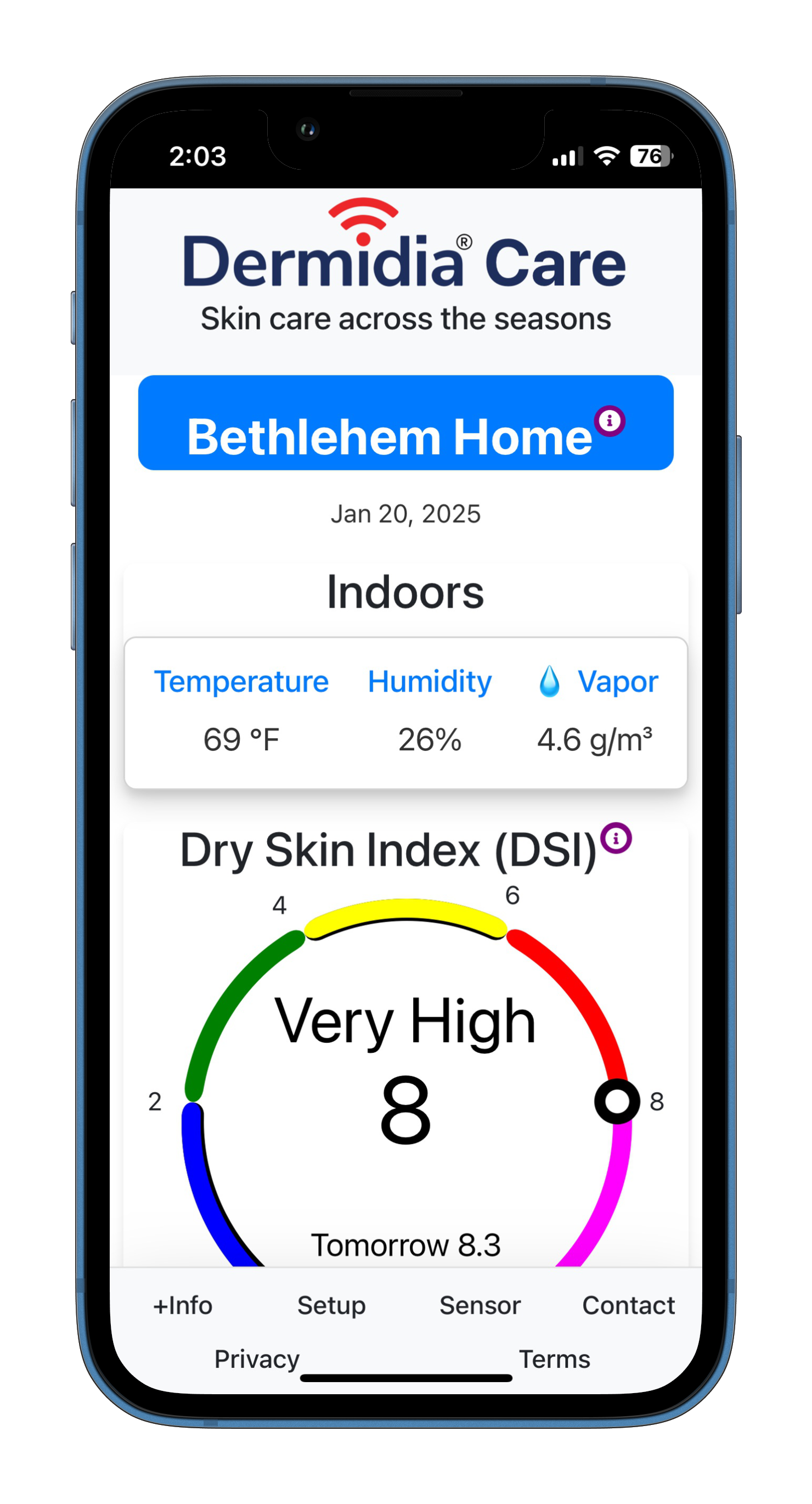
Connect to better skin care
Protecting Aging Skin from Indoor Dermal Stresses
Enhance Your Skincare with Dermidia's Installable Web Apps!
Take control of your skin health with our special web apps that are designed to analyze indoor dermal stresses (represented by the Dry Skin Index) and provide personalized skincare recommendations.
"I developed the Dry Skin Index to help people understand their exposures to skin stressors and adapt their skin care accordingly."
— Dave Layton, Founder Dermidia/Dermalapps LLC



